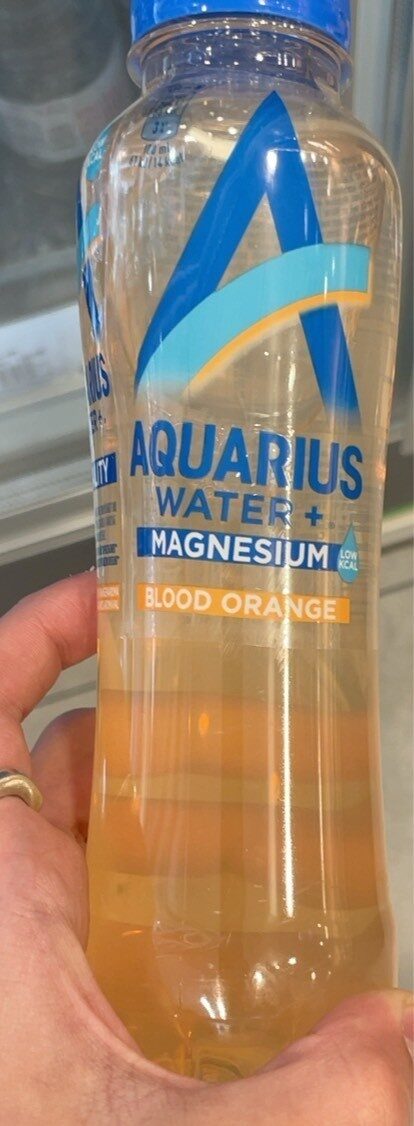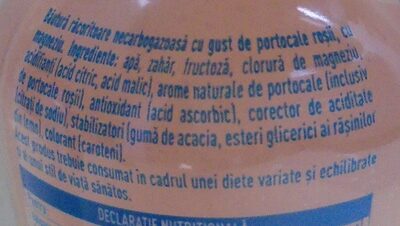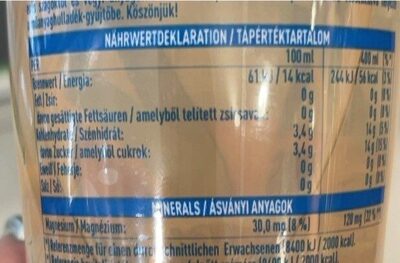Aquarius Magnesium - 400 ml,
This product page is not complete. You can help to complete it by editing it and adding more data from the photos we have, or by taking more photos using the app for Android or iPhone/iPad. Thank you!
×
Barcode: 54012189
Common name: Aquarius Băutură răcoritoare necarbogazoasă cu gust de portocale roșii, cu magneziu, 400ml,
Quantity: 400 ml,
Packaging: Plastic, Pet-polyethylene-terephthalate
Brands: Aquarius
Categories: Beverages, Sweetened beverages, ro:Băuturi răcoritoare necarbogazoase
Labels, certifications, awards:
Green Dot
Origin of ingredients: ro:Neprecizat
Manufacturing or processing places: Neprecizat
Traceability code: NEPRECIZAT
Countries where sold: Romania
Matching with your preferences
Environment
Packaging
Transportation
Report a problem
Data sources
Product added on by brandprivat
Last edit of product page on by inf.
Product page also edited by ecoscore-impact-estimator, kiliweb, openfoodfacts-contributors, packbot, spotter, yuka.F-FiHt2yA9EKLMbgwLIo5iCLPt_hKqNgCV0SoQ, yuka.UaxsAMCCFeARR_WCz4U3-z68Puz8CuRwBEwsog, yuka.sY2b0xO6T85zoF3NwEKvlkZkUPXEiGP6BhHummrRytWFBZfKf_hXwoLxbao, yuka.sY2b0xO6T85zoF3NwEKvlkhBV8T-uh6dGAf4yWap_9WMBaPzaux4vo6nDqs, yuka.sY2b0xO6T85zoF3NwEKvlld4SobO-SrgGE3SuW2o2crSKK7Ya4xd3ZjVKag, yuka.sY2b0xO6T85zoF3NwEKvlmp5SsXZiSvmaDvWu1yp_NyDD5vJZvZ2_dPQMKg, yuka.sY2b0xO6T85zoF3NwEKvln1ZafXnmTmfLCzivxG0xdSeMY7jTfNO-pHgI6s.










